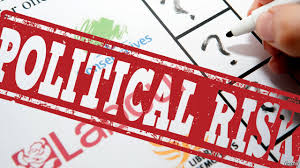Navigating the intricate socio-political landscape of India presents a myriad of challenges and opportunities for businesses operating within its borders. With a diverse political environment, decentralized governance structure, and dynamic regulatory framework, the assessment and management of political risk have become paramount for companies seeking to establish a foothold or expand their presence in the Indian market. Here’s a detailed elaboration:
Political Landscape:
- India is a federal parliamentary democratic republic, characterized by a multi-party political system and periodic elections at national, state, and local levels.
- Political power is decentralized, with states enjoying significant autonomy in governance, leading to variations in policies, regulations, and business environments across regions.
- Key political parties include the Bharatiya Janata Party (BJP), Indian National Congress (INC), regional parties, and emerging political formations.
Types of Political Risks:
- Policy Uncertainty: Changes in government policies, regulations, or economic reforms that may impact business operations, investment incentives, or market access.
- Regulatory Compliance: Challenges related to regulatory compliance, bureaucratic red tape, and legal uncertainties, particularly in sectors such as infrastructure, healthcare, and energy.
- Political Instability: Risks associated with coalition politics, inter-party conflicts, social unrest, and protests that can disrupt business operations and investor confidence.
- Corruption and Bribery: Risks of encountering corruption, bribery, or unethical practices in government dealings, procurement processes, and regulatory approvals.
Assessment of Political Risk:
- Regulatory Environment: Evaluating the regulatory framework, licensing procedures, tax policies, and sector-specific regulations governing business activities in India.
- Political Stability: Assessing the stability of the central and state governments, coalition dynamics, public opinion, and electoral trends to gauge political risks.
- Policy Analysis: Monitoring government initiatives, policy pronouncements, budget announcements, and legislative developments impacting industries and sectors.
- Stakeholder Engagement: Engaging with government officials, industry associations, advocacy groups, and local communities to understand their perspectives and concerns.
Management of Political Risk:
- Government Relations: Building positive relationships with government agencies, policymakers, and regulatory authorities through transparent communication, advocacy, and compliance.
- Legal Compliance: Ensuring compliance with applicable laws, regulations, licensing requirements, and corporate governance standards to mitigate legal and regulatory risks.
- Public Affairs: Engaging in public affairs activities, lobbying efforts, and advocacy campaigns to influence policy decisions, regulatory reforms, and market conditions.
- Risk Mitigation Strategies: Implementing risk mitigation measures such as diversification of operations, joint ventures, contractual protections, and political risk insurance.
Monitoring and Review:
- Political Intelligence: Continuously monitoring political developments, policy changes, electoral outcomes, and socio-economic trends through intelligence gathering and analysis.
- Scenario Planning: Anticipating potential political scenarios, policy shifts, and regulatory changes to develop contingency plans and adaptive strategies.
- Compliance Audits: Conducting regular compliance audits, risk assessments, and due diligence exercises to identify gaps, vulnerabilities, and areas for improvement.
In conclusion, effective assessment and management of political risk in India require a comprehensive understanding of the country’s political dynamics, regulatory framework, and stakeholder landscape. By adopting proactive risk management strategies, businesses can navigate the complexities of the Indian market and capitalize on emerging opportunities while mitigating potential threats to their operations and investments.

